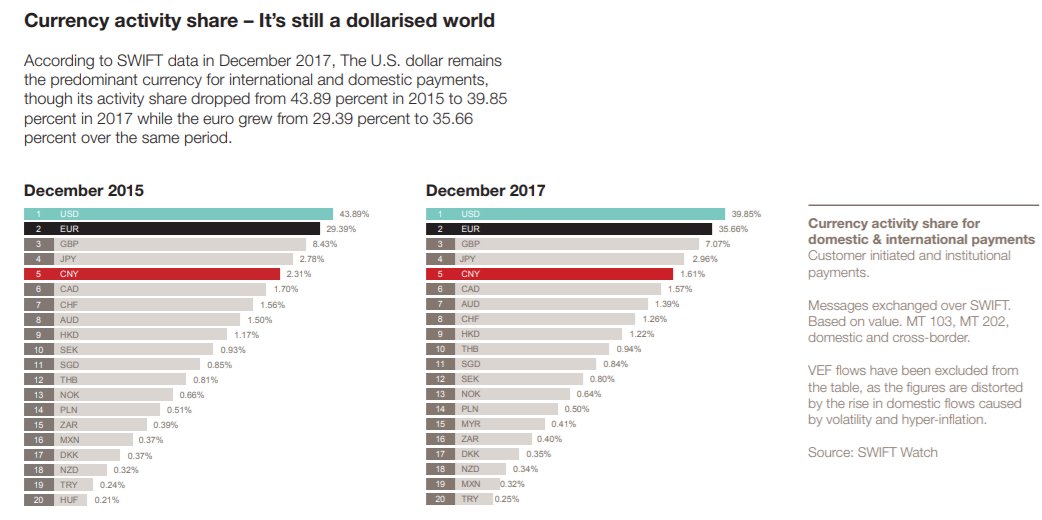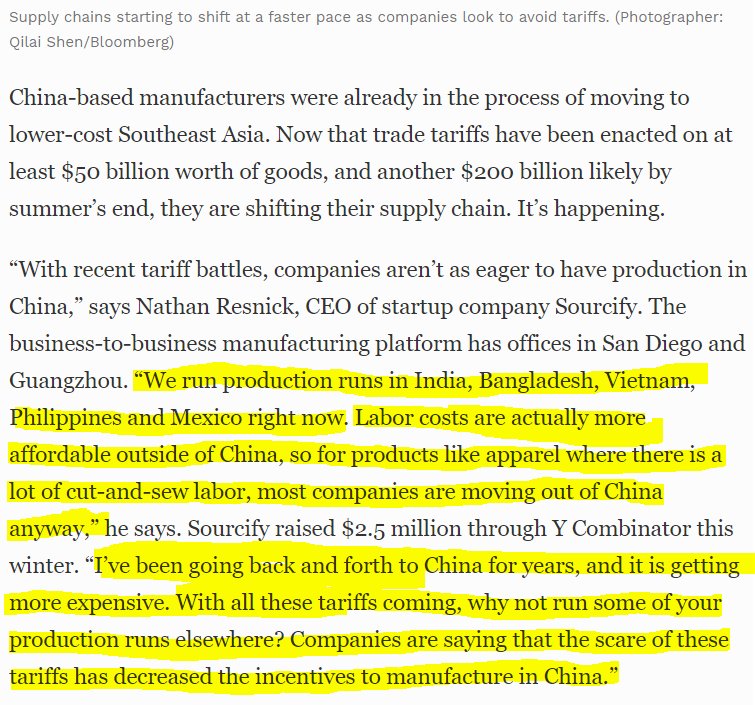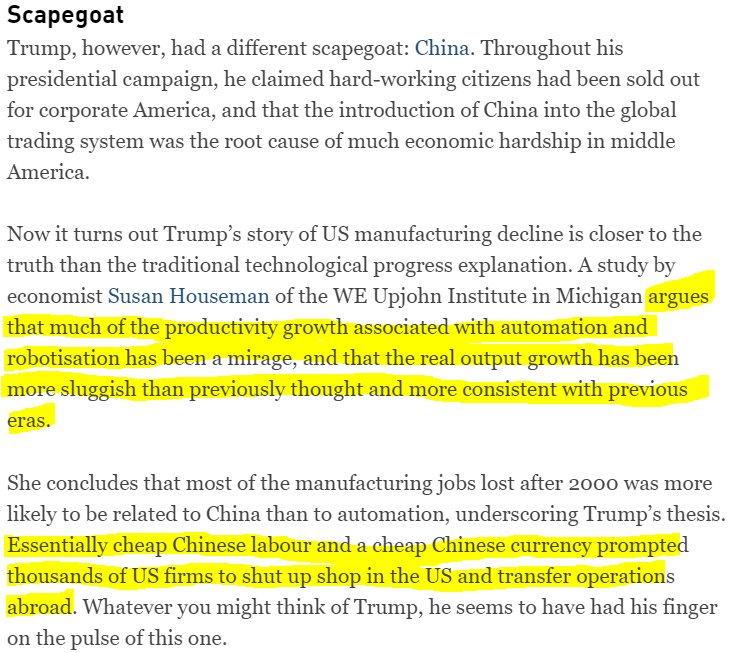This thread is on why while politicians and commentators often speak about trade in terms of bilateral trade balances, negotiators rarely do so.
(For those wondering, the neoliberal shill hat is like the Hogwarts Sorting Hat, except it summons @Noahpinion to talk you through your comparative advantages.)
When politicians talk about wanting exports what they generally mean is they want export JOBS... But the correlation is far from 1-1.
Hypothetical:
JLR imports 5,000 pounds of parts from France to then complete and export a 40,000 pound vehicle to the United States.
Bilaterally, the UK now has a 5k deficit with France but a 35k surplus overall.
In some product lines, the gap is colossal with entire industries (like lamb) potentially locked out by tariffs.
wto.org/english/tratop…
Will the 8% MFN tariff on twill products from the EU/UK be enough to push buyers into the arms of other twill manufacturers? 🤷🏼♂️
After all, some prominent politicians have promised lower prices on the shelves and Singapore on the Thames.
If your counterparty is going to do that, why not wait?
If they do, the EU is unlikely to offer generous concessions bilaterally.
Measuring the impact of No-Deal on both parties is a hideously complex exercise and the trade balance tells a fraction of the tale. /end


















